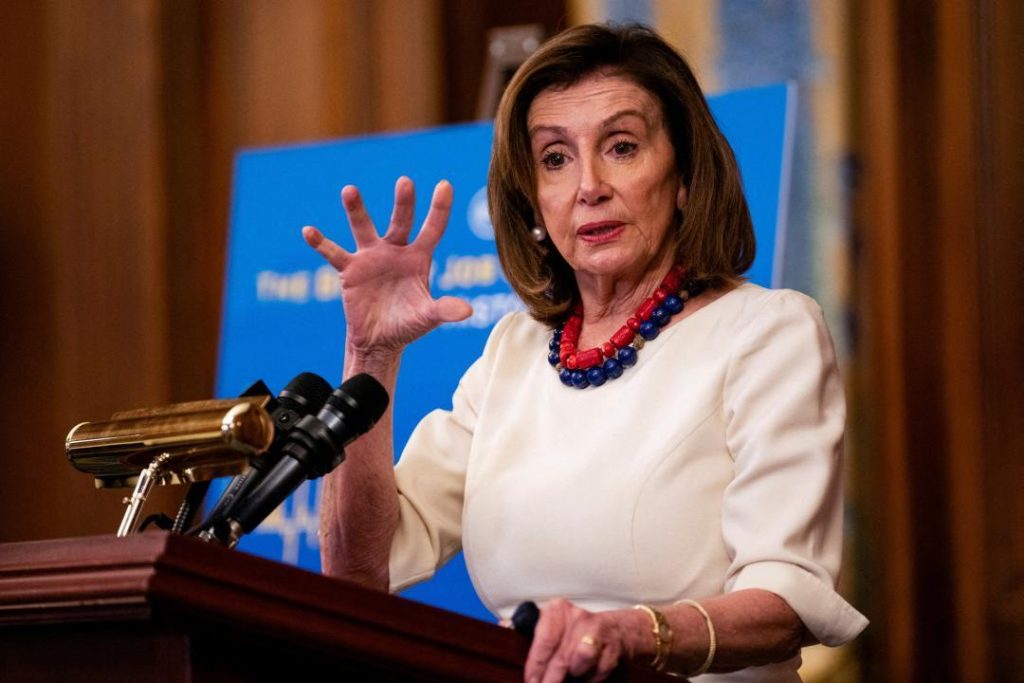
What is PELOSI Act & why is it named after former US Speaker Nancy Pelosi?
The Preventing Elected Leaders from Owning Securities and Investments (PELOSI) Act, reintroduced by US Senator Josh Hawley, is a bill that aims to prohibit lawmakers and their spouses from holding or dealing in stocks while holding office. The act has raised eyebrows among political circles, particularly due to its namesake, former US Speaker Nancy Pelosi, who enjoyed significant stock market gains during her tenure as Speaker.
The PELOSI Act proposes to restrict lawmakers from owning individual stocks, bonds, and other securities, instead allowing them to invest in more diversified and less conflict-ridden investment vehicles such as mutual funds (MFs), exchange-traded funds (ETFs), and Treasury bonds. The intention behind this legislation is to prevent conflicts of interest and promote transparency in government.
The bill’s namesake, Nancy Pelosi, was the Speaker of the House of Representatives from 2007 to 2011 and again from 2019 to 2023. During her terms, she and her husband, Paul Pelosi, accumulated significant wealth, with their net worth increasing by over $100 million. Critics have accused Pelosi of profiting from her position, citing instances where she and her husband bought and sold stocks in companies that stood to benefit from legislative decisions.
The PELOSI Act is not the first attempt to address conflicts of interest among lawmakers. In 2012, the Stop Trading on Congressional Knowledge Act (STOCK Act) was signed into law, prohibiting lawmakers and their staff from using non-public information for personal financial gain. However, the STOCK Act did not extend to spouses, allowing them to maintain ownership of individual stocks and other securities.
The reintroduction of the PELOSI Act comes at a time when concerns about government corruption and the influence of money in politics are growing. A recent survey found that 75% of Americans believe that money plays too great a role in politics, while 61% believe that the government is corrupt.
Proponents of the PELOSI Act argue that it will help to restore trust in government by preventing lawmakers from using their positions to enrich themselves. They also point to the potential for lawmakers to be influenced by special interest groups and lobbyists, who may offer them lucrative deals or investments in exchange for favorable treatment.
Critics of the bill, however, argue that it is overly broad and may have unintended consequences. They point out that lawmakers may still be able to invest in diversified portfolios through MFs and ETFs, and that the restrictions may not be effective in preventing conflicts of interest.
The PELOSI Act is not without its challenges. For instance, it may be difficult to enforce the restrictions, particularly in cases where lawmakers are allowed to invest in diversified portfolios. Additionally, the bill may face opposition from lawmakers who stand to lose from its provisions.
In conclusion, the PELOSI Act is a bill that aims to address conflicts of interest among lawmakers by prohibiting them from owning individual stocks and other securities while holding office. The act is named after former US Speaker Nancy Pelosi, who has been accused of profiting from her position. While the bill has its supporters and detractors, it is a necessary step towards promoting transparency and accountability in government.



